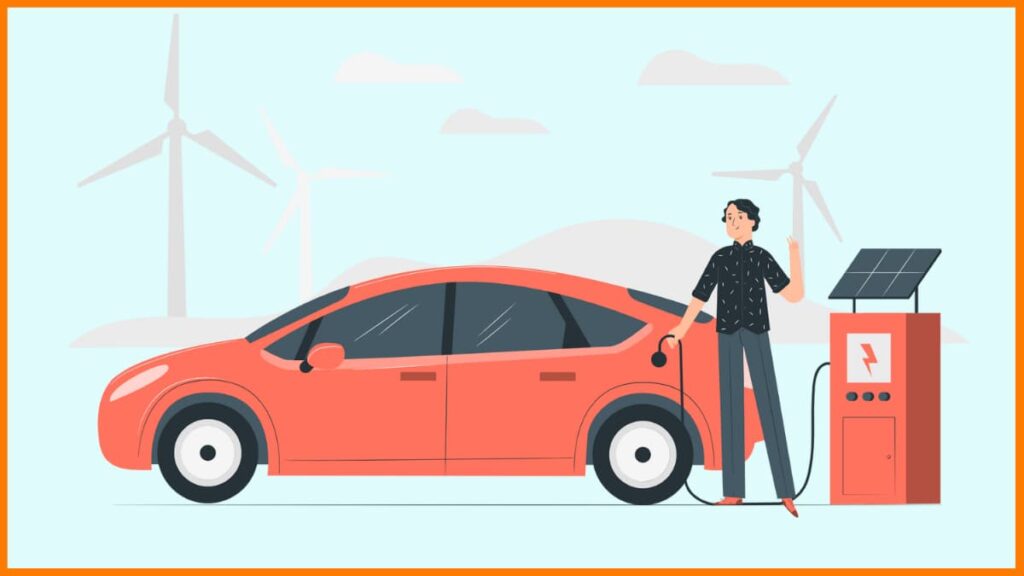Electric vehicles (EVs) are at the forefront of the global shift toward sustainable transportation. With advancements in electric motors, battery technology, and charging infrastructure, EVs promise a cleaner, more efficient future. This guide explores the advantages of electric cars, the latest innovations in EV technology, and how charging solutions are evolving to meet growing demand.
Advantages of Electric Cars
- Environmental Benefits Electric cars produce zero tailpipe emissions, contributing to cleaner air in urban environments and reducing greenhouse gas emissions overall. By switching to electric vehicles, consumers can significantly combat climate change and minimize the carbon footprint of personal and commercial transportation. Furthermore, as the grid increasingly incorporates renewable energy sources, the overall environmental impact of EVs continues to improve.
- Lower Operating Costs EVs are generally cheaper to run than traditional internal combustion engine vehicles. With lower fuel costs, reduced maintenance due to fewer moving parts, and government incentives like tax breaks and rebates, owning an electric vehicle becomes financially advantageous. Moreover, the cost of electricity for charging is often significantly less than that of gasoline, enhancing long-term savings.
- Energy Efficiency and Regenerative Braking Electric vehicles convert more of the energy stored in their batteries to movement, making them more efficient than gasoline vehicles. Regenerative braking further enhances efficiency by capturing and storing energy that would otherwise be lost during braking. This technology not only increases range but also extends the lifespan of brake components, reducing maintenance needs.
Electric Vehicle Technology
- Electric Motors: Quiet, Efficient Power Electric motors offer superior performance with instant torque delivery, resulting in smoother acceleration and quieter operation. Unlike traditional engines, EVs do not require gears, reducing mechanical complexity and improving reliability. This leads to a more enjoyable driving experience and enhances overall vehicle durability.
- Cutting-Edge Battery Technology While modern EVs rely on lithium-ion batteries, the future lies in solid-state batteries, which promise longer ranges, faster charging, and improved safety. Solid-state technology minimizes risks like thermal runaway, a significant concern with conventional batteries. This innovation is expected to revolutionize EV energy storage and make electric vehicles even more appealing to consumers.
- Autonomous Driving and V2X Integration Electric vehicles are increasingly integrated with autonomous driving systems and Vehicle-to-Everything (V2X) communication. V2X allows vehicles to communicate with each other, traffic systems, and the grid, enabling safer, smarter transportation. This connectivity can enhance traffic flow, reduce accidents, and optimize energy consumption across urban environments. Hardware-in-the-Loop (HIL) testing is essential in this context, allowing manufacturers to simulate real-world scenarios and ensure the reliability of autonomous systems before deployment.
EV Charging Solutions
- EV Charging Technology EV charging has evolved rapidly, offering multiple levels of charging:
- Level 1: Home-based, slow charging using a standard 120V outlet, suitable for overnight charging.
- Level 2: Faster home or public charging using a 240V connection, ideal for quicker top-ups.
- DC Fast Charging: Delivers rapid charging at public stations, typically charging a vehicle in 30 minutes to an hour, facilitating long-distance travel.
- Wireless EV Charging The future of EV charging includes wireless charging, which uses magnetic induction to transfer energy to the vehicle without cables. Though still in development, wireless charging promises greater convenience for both private and commercial EV users, potentially allowing for seamless integration into parking lots and public spaces.
- Smart Charging and V2G Integration Smart charging solutions enable vehicle owners to charge their EVs at times when electricity is cheaper, balancing demand on the grid. Vehicle-to-grid (V2G) technology allows vehicles to send unused power back to the grid, creating an interconnected, sustainable energy ecosystem. This not only supports grid stability but also offers an additional revenue stream for EV owners.
Hybrid Vehicle Technology: A Bridge to Full Electrification
Hybrid vehicles combine an electric motor with a gasoline engine to provide better fuel efficiency than traditional vehicles. There are three types of hybrids:
- Mild Hybrids: Use the electric motor to assist the engine but cannot run purely on electric power.
- Full Hybrids: Can run on electric power alone for short distances.
- Plug-in Hybrids (PHEVs): Feature larger batteries that can be charged via an external source, offering extended electric-only driving ranges.
Hybrids serve as an important stepping stone for consumers looking to transition toward full electrification, particularly in regions with limited charging infrastructure.
The Future of Electric Vehicles: Trends and Innovations
The future of EVs is bright, with ongoing developments in several key areas:
- Solid-State Batteries: Expected to extend range and reduce charging times, making EVs more competitive with traditional vehicles.
- Autonomous Driving: Electric cars will increasingly feature advanced driver-assistance systems (ADAS), bringing us closer to fully autonomous driving capabilities.
- Hydrogen Fuel Cells: A parallel technology to battery-electric vehicles, hydrogen fuel cells offer potential for long-range, emission-free driving, especially for larger vehicles like trucks and buses.
- Smart Cities: As cities evolve into smart ecosystems, EVs will integrate with urban infrastructure to optimize energy use, reduce traffic congestion, and enhance safety through connected technologies.
Conclusion: Driving Toward a Sustainable Future
Electric vehicles represent a crucial shift toward sustainable transportation. With innovations in battery technology, charging infrastructure, and autonomous systems, the future of mobility is electric. Whether you’re exploring the benefits of EV ownership or staying up-to-date with the latest in EV technology, embracing electric vehicles not only supports personal mobility but also contributes to a healthier planet for future generations.
As the industry continues to evolve, staying informed about developments in EV technology and infrastructure will be essential for making informed choices about sustainable transportation.



